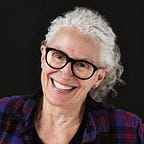Measuring complexity: A short history
There is a long and rich research tradition behind the work my colleagues and I have been doing for the last few decades. It started in the late 19th century with ideas first introduced by James Mark Baldwin. In a nutshell, Baldwin proposed that learning was more than the simple acquisition of knowledge. He observed that we didn’t just learn stuff, but the way we understood and worked with that stuff changed over time in predictable ways. (He would never have used the word “stuff.”)
In the early 20th century, Jean Piaget (the world’s first and greatest genetic epistemologist) came along, and working with dozens of other researchers over several decades, undertook a deep study of how knowledge develops over time. He influenced an entire generation of researchers known as neo-Piagetians. My colleagues and I think of ourselves as second-generation neo-Piagetians. In the following video, I describe how our work fits in this research tradition.
